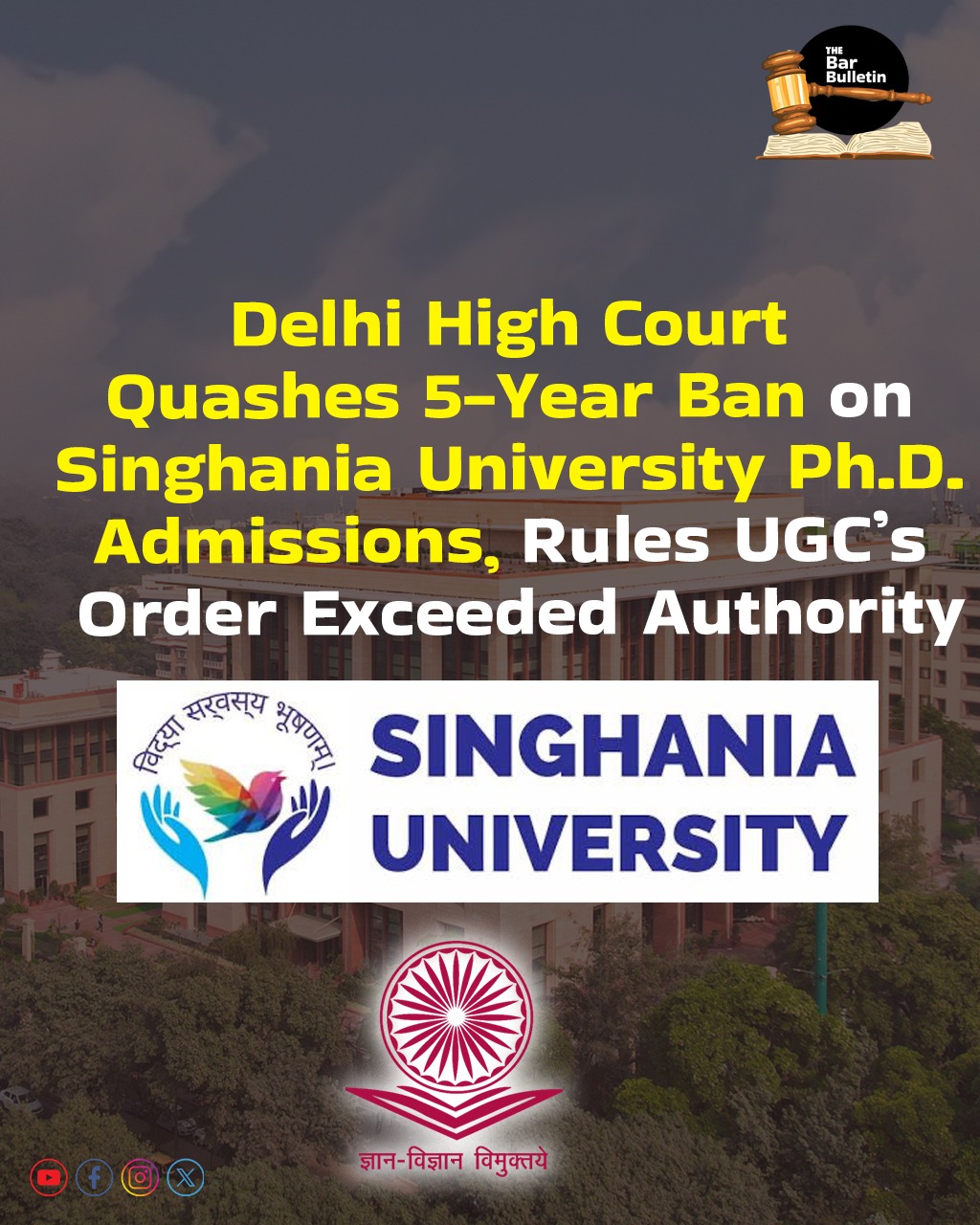The Delhi High Court on September 15, 2025 set aside the order by the respondent- University Grants Commission (UGC) which debarred the petitioner – Singhania University from enrolling Ph.D. scholars for five academic years (2025-26 to 2029-30). Justice Vikas Mahajan found that there was no provision in the UGC Act which permitted the UGC to pass such orders.
The case arose from a UGC directive based on a Standing Committee Report, which found the petitioner university in violation of the Ph.D. Regulations of 2009, 2016, and 2022 for admitting candidates with less than 55% marks, and barred it from enrolling Ph.D. candidates for five years. The petitioner university, established under a 2008 State Act and recognised under the UGC Act, argued that it had complied with all requirements, that UGC lacked authority to impose such penalties, and that reports were withheld without granting a personal hearing, violating natural justice. The UGC countered that it acted under its regulatory powers under Sections 12 and 26 of the UGC Act, citing lowered academic standards and adequate opportunities given to the petitioners to respond.
The Court after observing both the parties rejected the petitioner university’s plea of procedural fairness as the findings were written in the show cause notice where the petitioner had neither sought the report nor challenged the conclusions in its reply. However after examining the scope of the respondent UGC’s powers the Court found no statutory provision which could debar a university from conducting Ph.D programmes. It noted that Sections 12, 12A, 14, and 24 of the Act authorised regulatory oversight and certain limited sanctions, such as withholding grants, but not disciplinary debarment and Section 26 which framed Ph.D regulations did not confer such power too. To reinforce its reasoning, the Court relied on binding precedents such as In the State of M.P. v. CEPRD (2020) 9 SCC 781, it was held that penalties not contemplated by statute or rules cannot be imposed, Vijay Singh v. State of U.P. (2012) 5 SCC 242, where it was held that disciplinary authorities cannot impose punishments beyond the statutory framework. Likewise, in S. Khushboo v. Kanniammal (2010) 5 SCC 600, the principle of nulla poena sine lege was reaffirmed that no person can be penalised without express legislative sanction. Applying these principles, the Court held that the UGC, being a statutory body, had acted ultra vires its jurisdictional mandate in debarring the petitioner-University from enrolling Ph.D. scholars for five years. The impugned order dated 16 January 2025 was accordingly quashed and the writ petition allowed with all pending applications disposed of.
Appearances:
For the Petitioner: Mr. Parag P. Tripathi, Sr. Adv. with Mr. Aslam Ahmed, Mr. Ravi Singhania, Mr. Rohit Jain, Mr. Shabies A. Nabi, Ms. Mishika Bajpai and Mr. Harilal. S., Advs.
For the Respondent: Advs. – Mr. Manoj Ranjan Sinha and Mr. Vishal Agrawal



